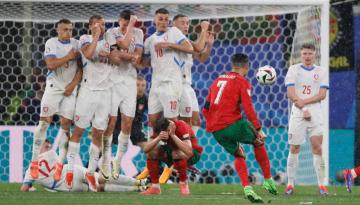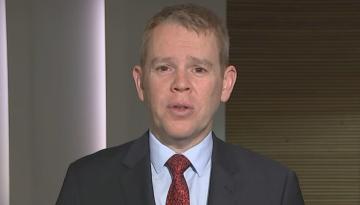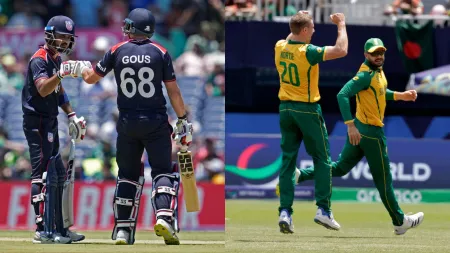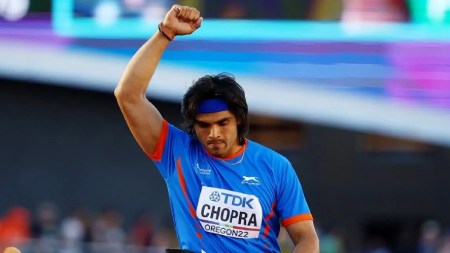Fringes to Olympics via French Open door: How journeyman Balaji got his lucky break
EARLIER THIS month, Sriram Balaji, the World No. 62 and the third-highest-ranked Indian doubles tennis player, arrived in Paris uncertain if he was playing the French Open at all. Typically fickle Parisian weather meant there were enough withdrawals by singles players in the doubles category for Balaji, alongside Mexican partner Miguel Reyes-Varela, to make it into the main draw.
He would leave the French capital with three solid Grand Slam matches under his belt — his best-ever finish at a Major — and more importantly, ensuring his return ticket to Paris next month.

Balaji has been picked by World No. 4 Rohan Bopanna to partner him in the men’s doubles category for the upcoming Paris Olympics, ousting the higher-ranked Yuki Bhambri to make it to his first Games.
Perhaps it is strengths specific to Balaji’s game, perhaps it was the match he played against Bopanna in the third round (taking him to the wire, with Bopanna and his Australian partner Mathew Ebden, second seeds, escaping in the deciding set tiebreaker). Perhaps Bopanna’s decision was premeditated.
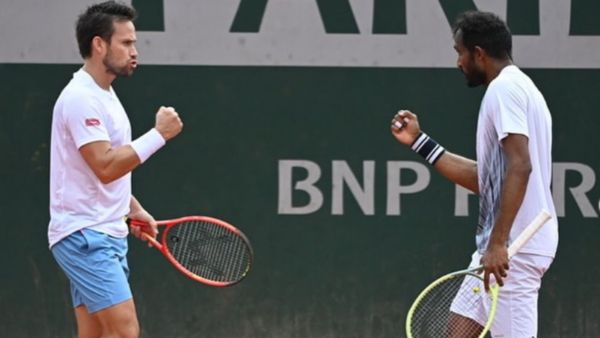 Balaji in action during Roland Garros. (Instagram)
Balaji in action during Roland Garros. (Instagram)
Yet, there is little doubt that Balaji’s leap of faith, to arrive at Roland Garros even though he was uncertain to play when he could have earned prize money and ranking points elsewhere, paid off in extraordinary fashion.
“When I got there, we were sixth out (as alternates) so I was not sure we’ll get into the draw,” he tells The Indian Express from London, where he has travelled to play a Challenger event on grass. “And as soon as we got into the draw, it was like a bonus for us. We didn’t have anything to lose. We were just playing free and just focusing on every point by point and then it worked actually.”
For players outside the very elite, they often go through the dilemma of travelling to Majors despite being uncertain they will even play. The financial burdens can be high for very little return. But Balaji, currently based out of Frankfurt, Germany, says he did not mind the uncertainty, being able to experience the Grand Slam atmosphere was enough.
“It’s not easy,” he says. “The cuts have been so high and there are a lot of single players too so making the draw at the Majors has been tough. Anything could happen. If we don’t get in, then I was ready for it. I was okay to miss one week of playing challenges or just sit there in a slam, you know, where also you get to practice with very good players.”
“There’s no ‘faith’ or anything, but that’s the risk you’re supposed to take. If it works, it works. I got into the draw and was happy and I think I made maximum use of it… Fortune favours the brave, I guess,” he adds with a self-aware chuckle.
Now 34, Balaji had been somewhat of a promising junior before his career tailed off due to injuries and the typical malaise of making the tough transition to the seniors. Even as he accepted his limitations and switched track to doubles, his parents continued to provide as much support as they could – his father was a Customs officer in his hometown of Coimbatore.
His may seem like the case of a typical tennis journeyman; this is essentially a sport that only does enough to support its top 100 players. But his run at the French Open and Olympics call-up has renewed faith.
It was the third-round match against Bopanna that showed many of Balaji’s strengths on clay; while Bopanna will claim that did not sway his decision, it’s hard to think it did not have any impact.
Balaji is quite certain that it was not the turning point though. “No, no, no, it wasn’t just the match. He also told me, one or two weeks before, he hinted that I’m one of the potential partners, me or Yuki,” he said.
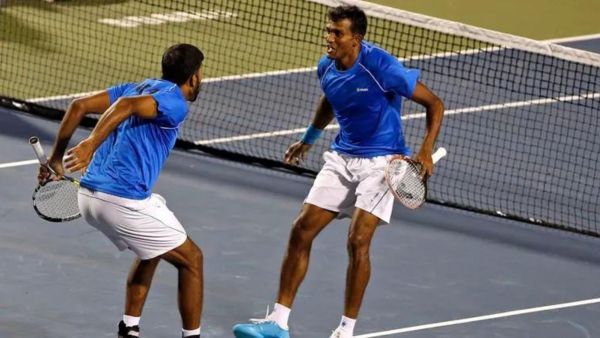 Rohan Bopanna and N Sriram Balaji in action. (FILE Photo)
Rohan Bopanna and N Sriram Balaji in action. (FILE Photo)
Balaji insists it was his results on slow clay at Challenger events, and his consistency, that got the job done for him.
He elaborates on how playing styles may also be complementary, which may be why Bopanna opted to partner him instead of the more-experienced, higher-ranked Bhambri.
“Both of us have big serves, so hopefully we make the maximum use of it. And then Bops has big returns also, an overall big game,” he says. “So if one or two returns crack, and if we can break them, and keep holding our serves, the match can turn.”
That aspect of Bopanna’s game was visible at Roland Garros: the same venue set to host the Olympics. The 44-year-old, with limits to his movement, prefers to end rallies quickly with his big serve and forehand combination. But throughout their matches in Paris, Ebden – who has formed a solid partnership with the Indian as the more athletic baseliner – struggled to hold serve and let rallies roll long enough for them to be outside of Bopanna’s comfort zone. That will be an area where the Indian duo may have an edge at the Games.
Balaji’s career has never quite seen the kind of highs of that of Bopanna. He is currently enjoying his highest-ever ranking, and making main draws of big tournaments has been rare. The last month has been the most significant of his career so far, but the next few hold the potential to be life changing.
Disclaimer: The copyright of this article belongs to the original author. Reposting this article is solely for the purpose of information dissemination and does not constitute any investment advice. If there is any infringement, please contact us immediately. We will make corrections or deletions as necessary. Thank you.


